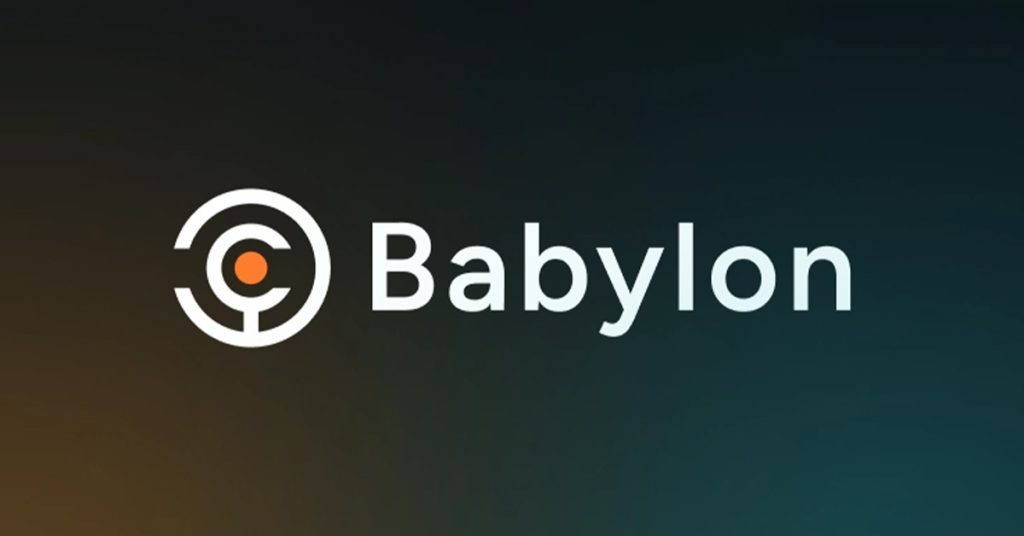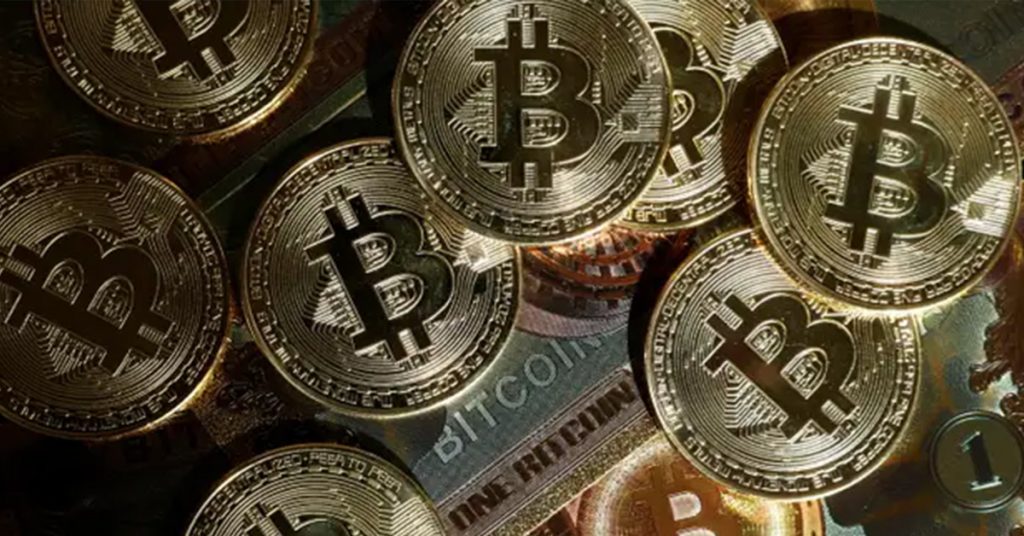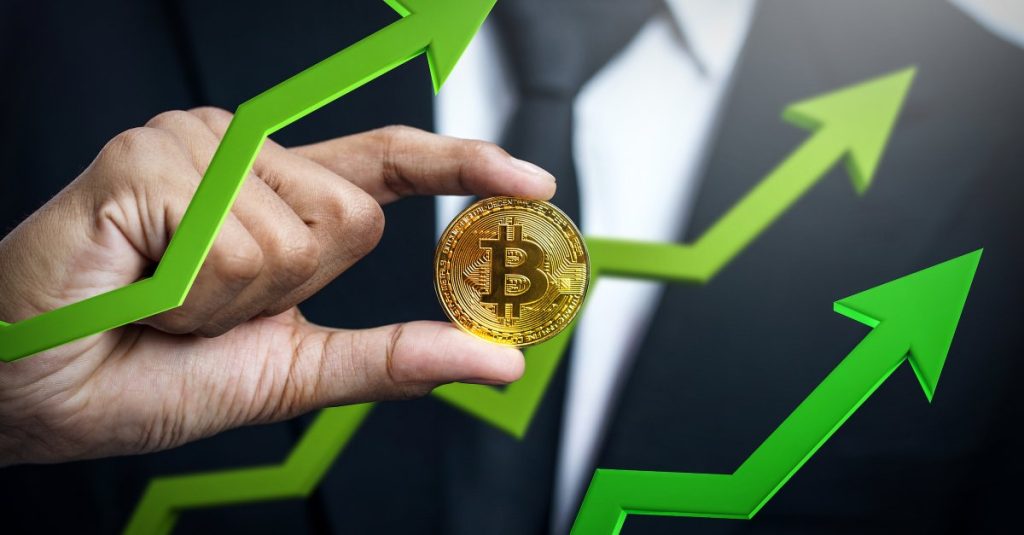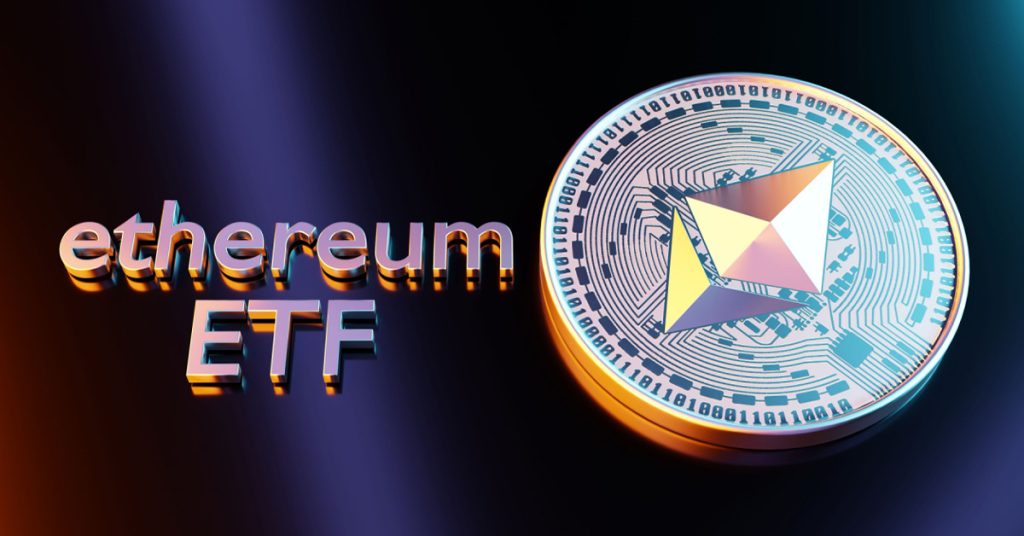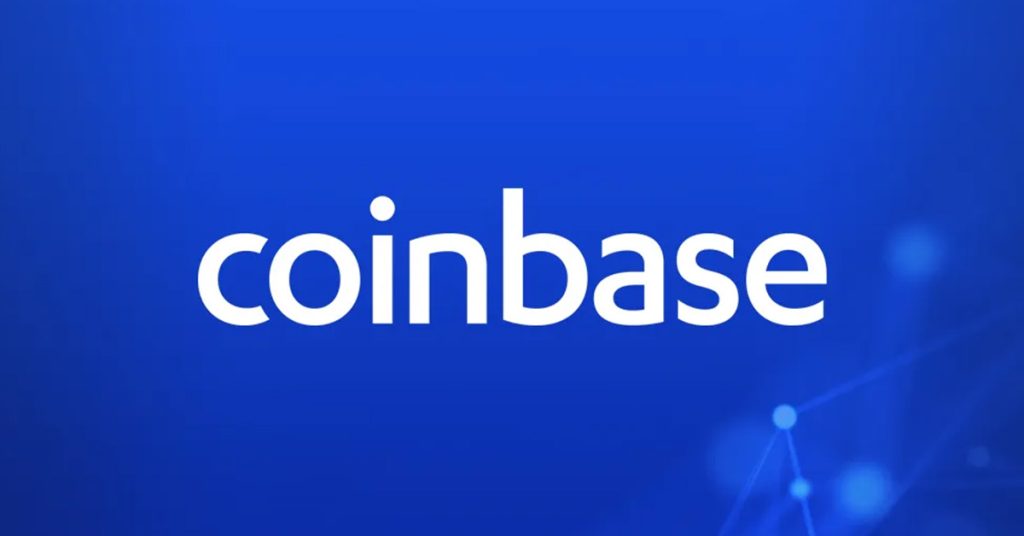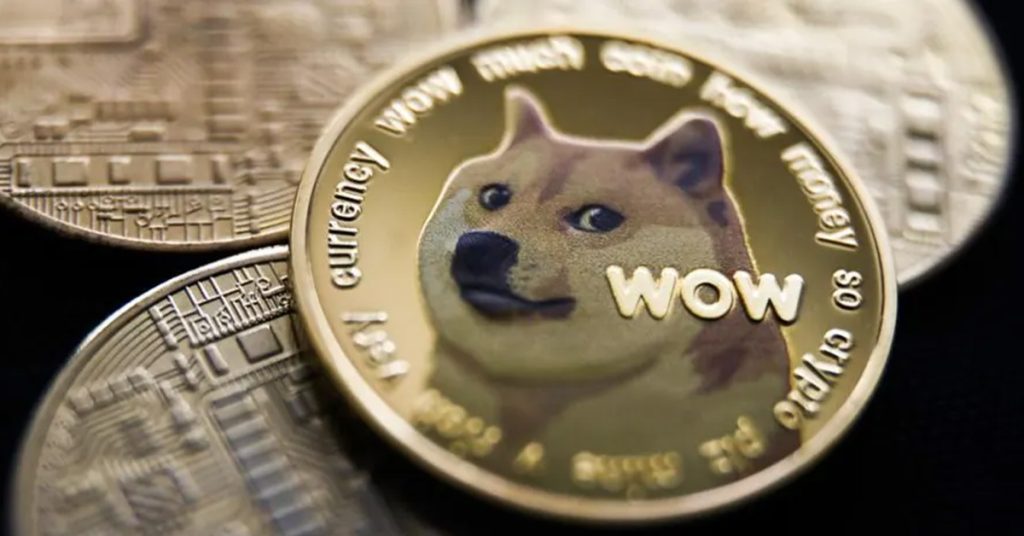Decentralized Science (DeSci): Tokens and DAOs Take on the Inefficient Legacy System
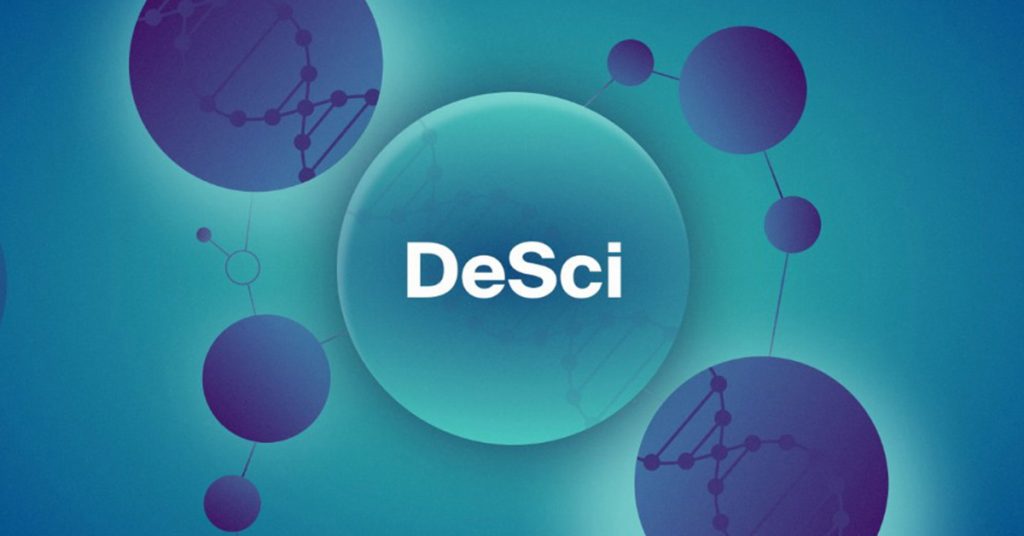
TL;DR
Science is a field where crypto incentives make sense: trust in our bureaucratic and inefficient scientific establishment is wavering. We have the tools now to decentralize and monetize this compromised field. Lots of DeSci ecosystems have sprung up that allow communities to fund researchers, and to protect and monetize their findings.
Just reflect for a bit on the following questions about our society’s current way of managing the scientific process.
- Why can’t you access a lot of scientific papers, even though they are funded with taxpayer money?
- Why is research funding a top-down endeavor, overseen by small groups of government decision-makers? Could private funding not lead to more effective capital allocation?
- Why is tenure for researchers so dependent on peer-reviewed papers that get a lot of citations? Isn’t this metric gamed?
- Why is the scientific process not more permissionless? Why can’t more people participate, even if they lack certain paperwork or access to a circle of peers?
A Distorted Monopoly
We have a ‘market’ of science that is distorted by top-down decision making, bureaucratic inefficiencies, and incentive schemes that are reminiscent of the government monopoly on money creation.
Scientists – only humans after all, who have to pay their mortgage – face intense competition and career pressures, which might lead them to prioritize activities that increase their citation count over those that contribute more significantly to scientific knowledge.
In the same way that a government’s money monopoly distorts the price signal of the free markets, the current scientific system distorts the creation and free flow of new knowledge.
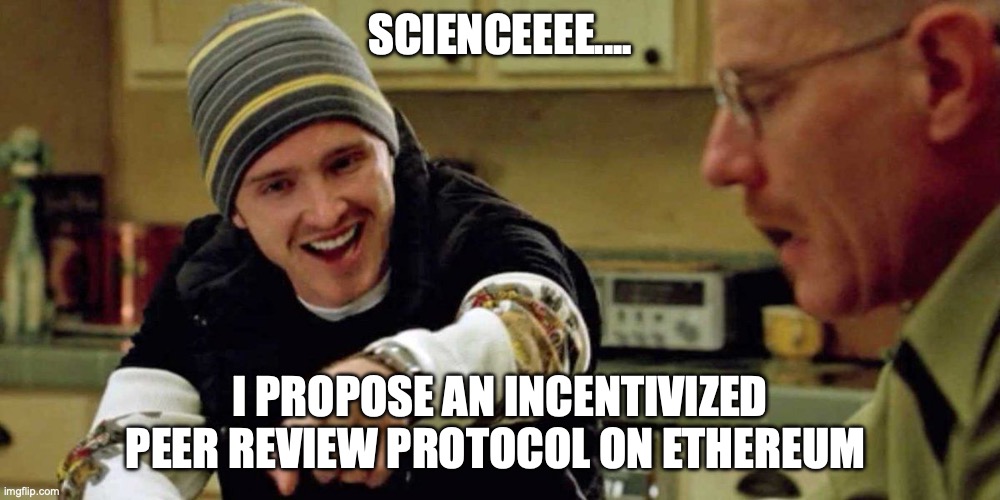
There are more problems. Why are scientists not rewarded more than they are now (another pressing issue) for publishing negative results? Currently, there is not enough research being done trying to verify/disprove prior research – a core element of the scientific process is under threat, as this kind of research isn’t ‘sexy’ and it doesn’t get you citations and hence funding.
More in general, why are scientists not more rewarded for the value they bring to society? Can’t scientists become business leaders in the way that Bezos and Musk are? A precondition is that science itself would become a business sector. If so, it could create a new class of ‘scientist entrepreneurs.’ This shift would recognize and reward scientists not just for their contributions to knowledge but also for their ability to generate economic value from their discoveries.
Introducing: DeSci
Are you a lover of scienceee…? Let’s dream a bit.
We can see a future where…
- Science is auditable and reproducible, with public data available for anyone to verify and replicate findings
- The scientific process is more efficient and reliable, potentially unlocking groundbreaking innovations.
- Barriers of entry are low: people worldwide can contribute to scientific progress, regardless of their geographical location or institutional affiliation.
- Researchers will be properly rewarded for their endeavors, in terms of intellectual property.
- So, better capital allocation and second is to encourage risk-taking.
I summary, the scientific research system, much like a blockchain, needs mechanisms to resist corruption and align incentives with truth and innovation, rather than citations and risk-averse funding strategies.
With these goals in mind, dozens of ecosystems have sprung up, really gaining steam since 2021: Decentralized Science. The goal is to build a parallel scientific ecosystem.
Let’s first look at ResearchHub.
ResearchHub
ResearchHub, co-founded by Brian Armstrong (Coinbase CEO) is a parallel scientific ecosystem to traditional institutional science, comparable to how DeFi is a parallel financial system to traditional finance. Or comparable to what GitHub is for software development: a tool for community collaboration.
Similar to many DeFi protocols – but unlike GitHub, ResearchHub is token-incentivized. It’s coin is Research Coin (RSC), an ERC-20 token.
At first glance, Research Hub looks like Reddit, in the way that users can upvote and downvote posts and answers.
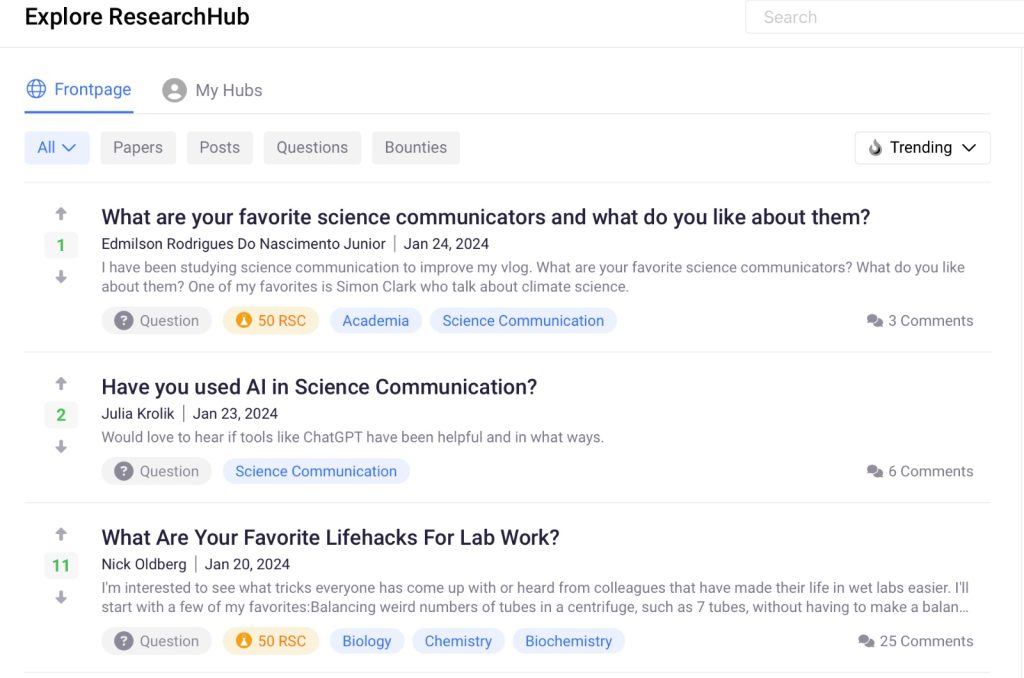
Users can earn Research Coin, an ERC-20 token, for creating high-quality content. This includes sharing papers, creating summaries, and participating in discussions.
Users can also earn tokens by completing scientific tasks through a bounty feature.
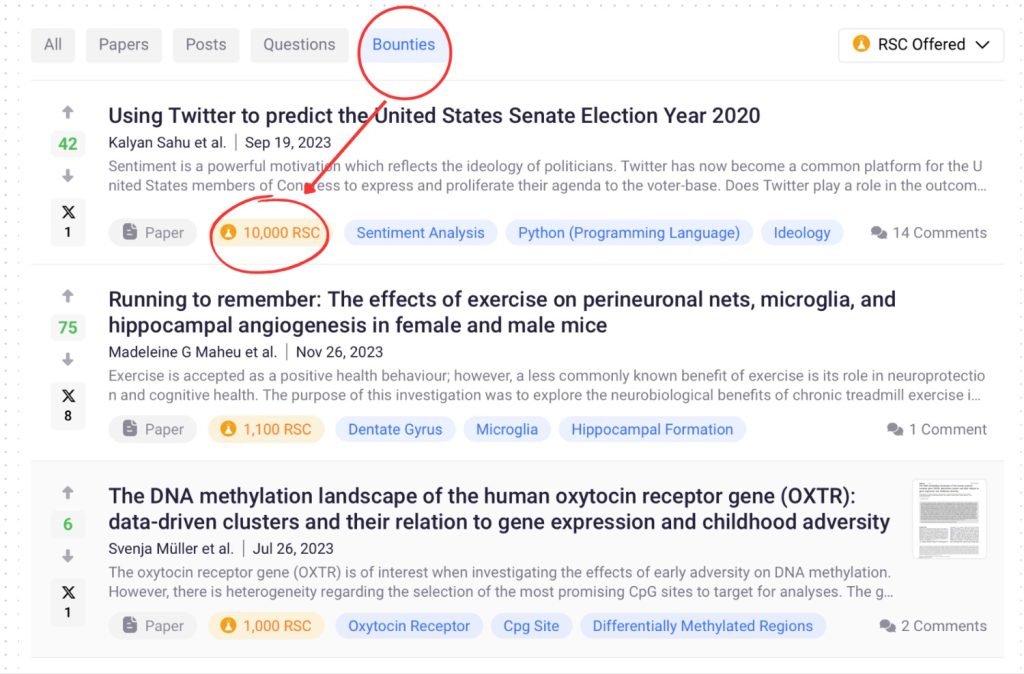
The platform also enables micro-grants, where scientists can allocate small amounts of capital to others in the community to answer specific scientific questions or explain complex theories. This feature fosters interaction and collaboration within the scientific community.
Hubs are collections of papers that are related to a specific topic.
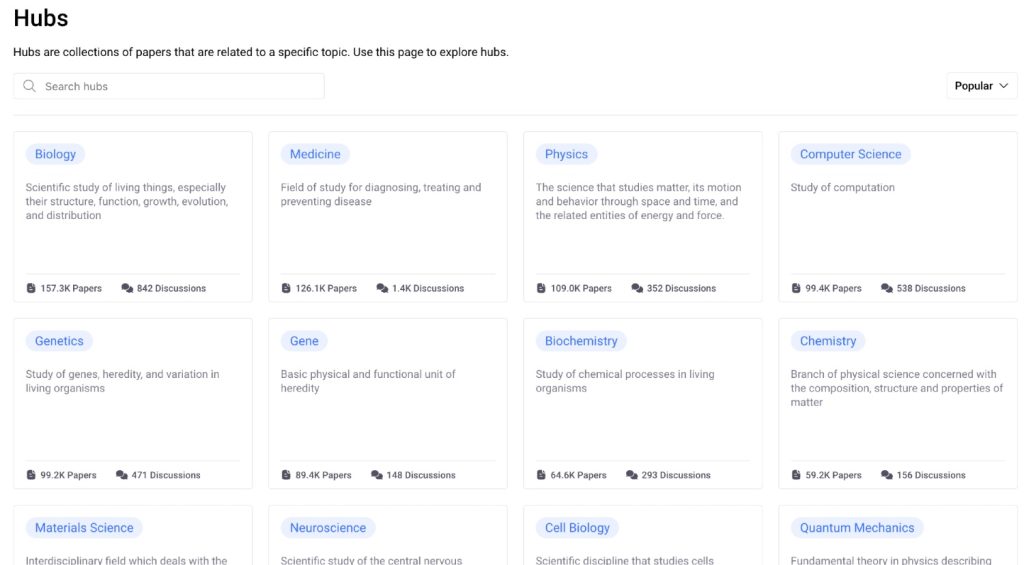
Research Hub’s governance model involves community-driven decision-making. With its open-source code, the platform allows community members to fork it if they disagree with the direction of the project, promoting a decentralized governance structure.
Molecule DAO: Minting Intellectual Property NFTs
Let’s briefly talk about a second DeSci example: Molecule DAO. Its aim is to fund early-stage Biotech research and it employs NFTs in the process!
Like its cousin Vita DAO – perhaps the biggest name in DeSci – it uses Intellectual Property (IP) NFTs to fund research projects. These NFTs hold legal IP rights and data access control to various forms of intellectual property of the research.
The IP creator uploads the Research Agreement (or relevant IP contract) to the IP-NFT. Once minted, the IP-NFT represents ownership of the intellectual property according to the terms of the Research Agreement and Assignment Agreement. The creator maintains control over the IP rights until the IP-NFT is transferred to another wallet.
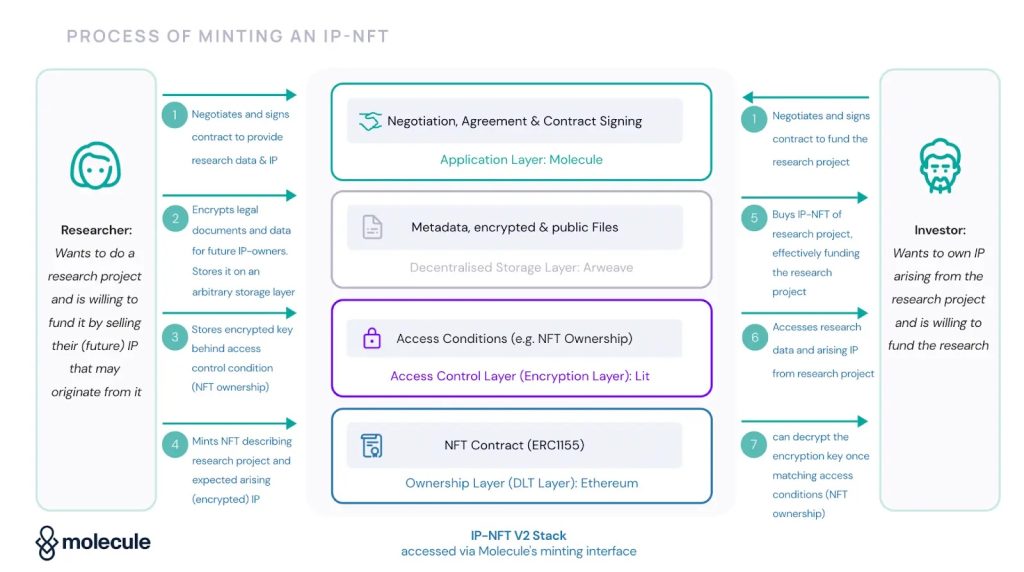
Some advantages of this NFT approach are the streamlining of the funding. Creators and Researchers no longer need to navigate the complex grant application process, accelerating early-stage research. Second, community Engagement. They open up direct collaboration between researchers and stakeholders and the general public. Lastly, control Over Data. NFTs grant creators control over data access, especially science researchers. This is crucial for promoting open science and ensuring research findings fall in the right hands.
Conclusion
Crypto is like a decentralizing acid that can eat its way through all kinds of monopolies. Decentralized Infrastructure (DePin) is another recent narrative – the temple of science is next in line. This doesn’t mean ‘tradsci’ needs to worry yet about its dominance. The endeavor to decentralize science is of course monumental, and many DeSci projects are just getting some traction. But DeSci does give disenfranchised researchers with daring proposals an alternative ecosystem to prove themselves and even monetize their successes. The end goal? More regular and impactful scientific breakthroughs, which we all benefit from.





